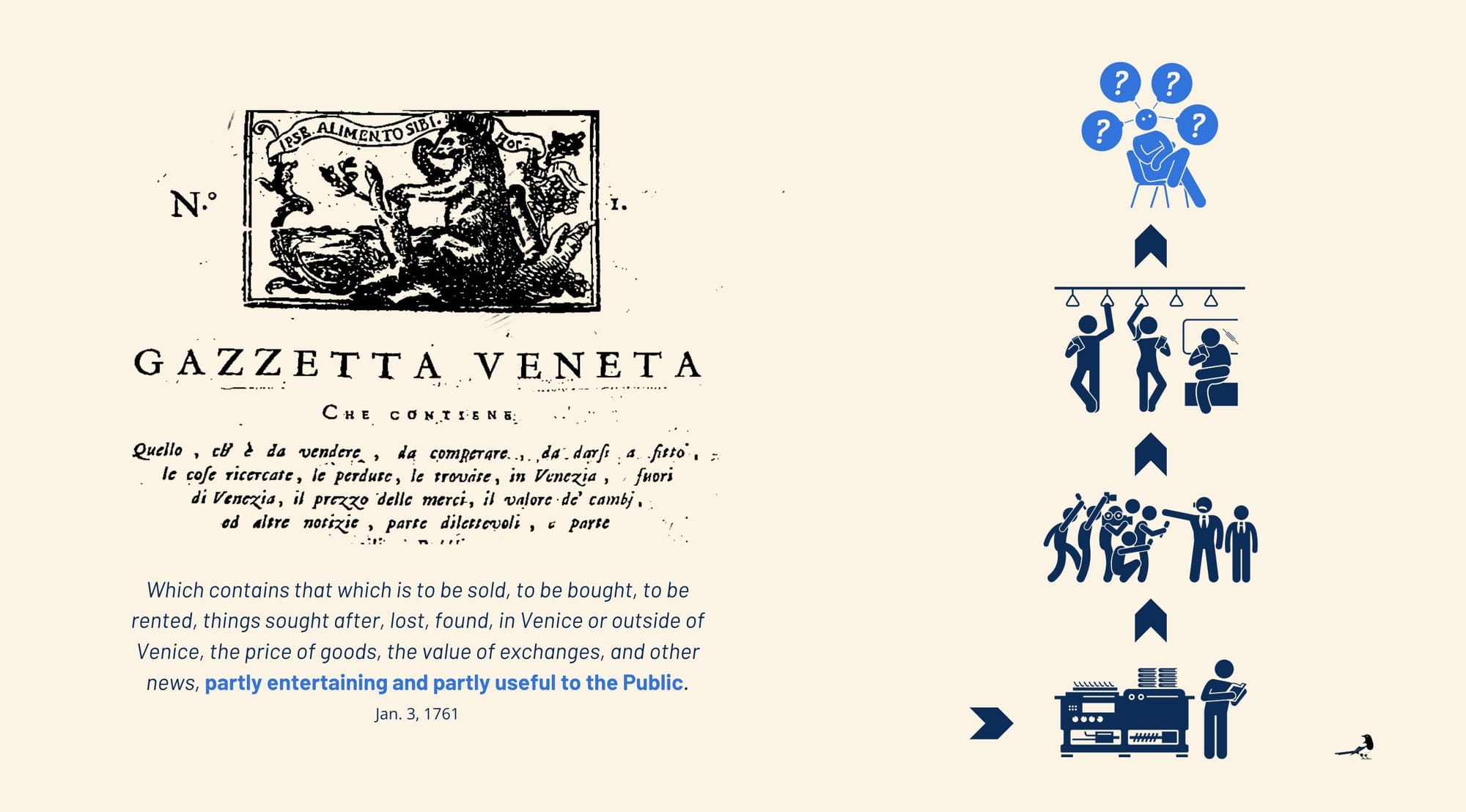Why the Magpie?

The Short Story.
In the 1600s, some of Italy's first newspapers were news sheets called gazeta, named after a small Venetian coin that matched the papers' price. Some suggested the word came from gazza—the chattering magpie that spread news.

Unlike its popular portrayal, the magpie isn't simply a collector of shiny objects, but a discerning aggregator attuned to cultural traits. This mirrors effective media strategy, where success comes not from broadcasting content, but from understanding genuine human needs and creating experiences that resonate both functionally and emotionally.
The Longer Story.
While autocratic environments produce numbingly dull media with deadening sameness, societies themselves remain vibrant and complex, filled with diverse experiences waiting to be recognized and shared.
For too long, media has positioned itself as transcending limitations to inform the public—fighting against silence, noise, bias, or lies—through well-reported stories. This framing misses a crucial truth: journalism isn't inherently valuable; it only matters when it serves real people.
Gazzetta is a dynamic team of researchers and media professionals working globally toward this mission. What began as a quest for more compelling and revelatory stories evolved into a deeper insight: truly impactful reporting means writing not just about communities but for them, addressing their actual needs rather than making assumptions about what matters.
When journalism genuinely connects with lived experiences, it creates its own momentum. People share it not because algorithms push it, but because it resonates with something authentic in their lives. These stories become part of the shared narratives that build collective identity and resilience.

How media organizations navigate these challenges offers lessons for journalism everywhere—on becoming more resilient to silencing and more intentional about connecting with the people they aim to serve. The path forward isn't about holding some imaginary line or begging platform leaders for goodwill—it's about competing on utility in a marketplace of time and attention.
We now build and support newsrooms, developing their strategies through our Gazzetta process of audience research, remote reporting capabilities, digital security, and real-world iterative product development. Gazzetta's mission is to help information providers address fundamental challenges of irrelevance and disconnection by embracing a theory of service rather than a theory of change.
In these projects, we have witnessed many newsroom failures. The challenges aren't just external (surveillance, harassment, intimidation, violence). More often, they're internal: lacking clarity on essential questions: "Who do we genuinely serve?" "What tangible problems can we help solve?" "How do we measure success beyond reach metrics?"
Success stories aren't about broadcasting cleverness to the masses. They're about organizations intentionally meeting people's functional and emotional needs, willing to test, iterate, and discard approaches that don't work.
These ventures recognize that journalism's power lies not in self-expression but in service, helping people better navigate their lives through information that truly matters to them.